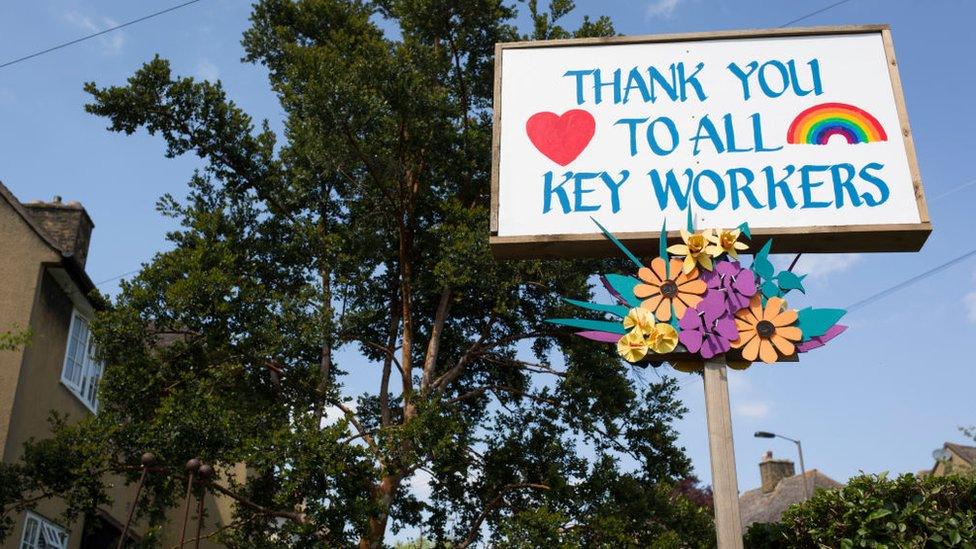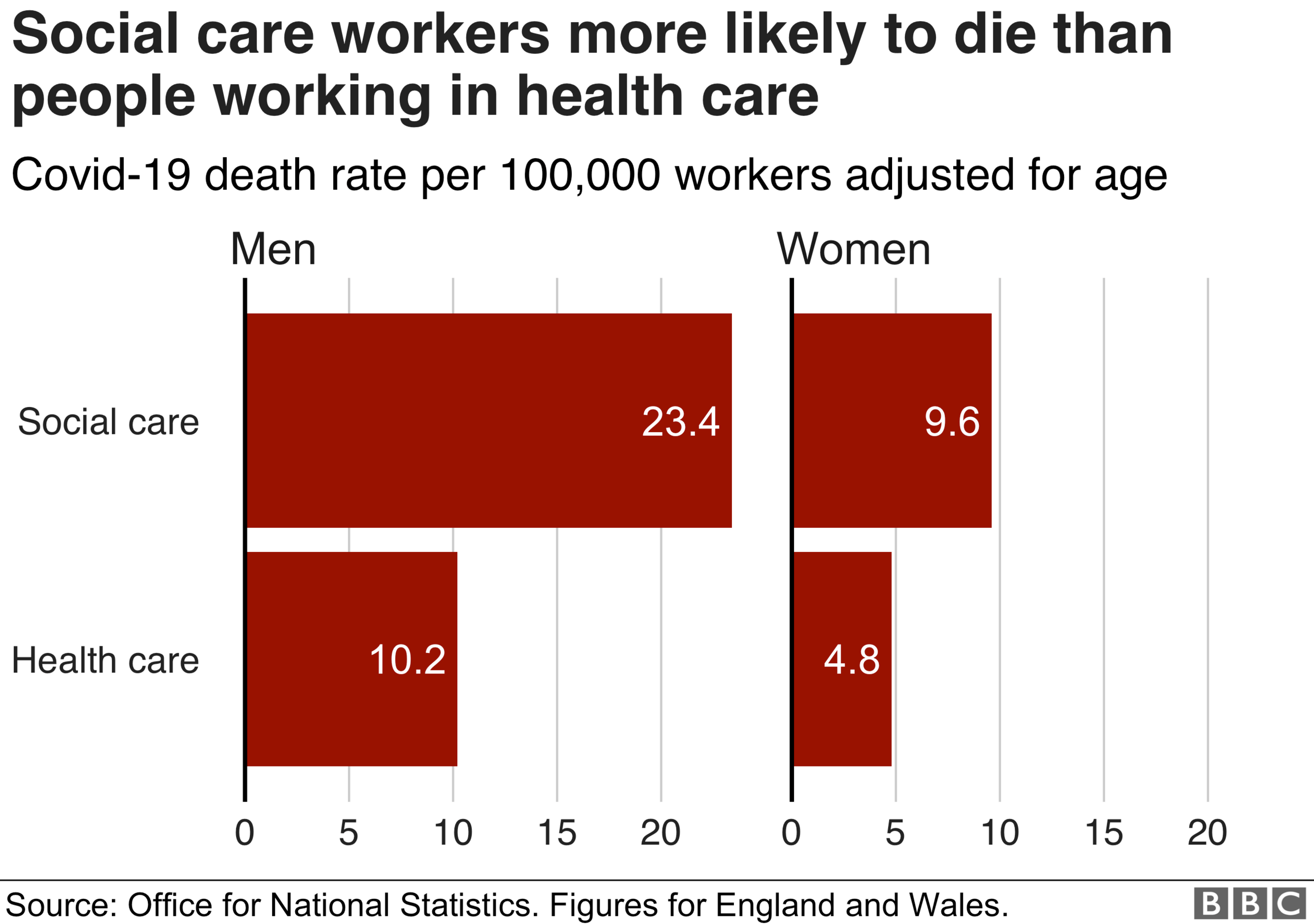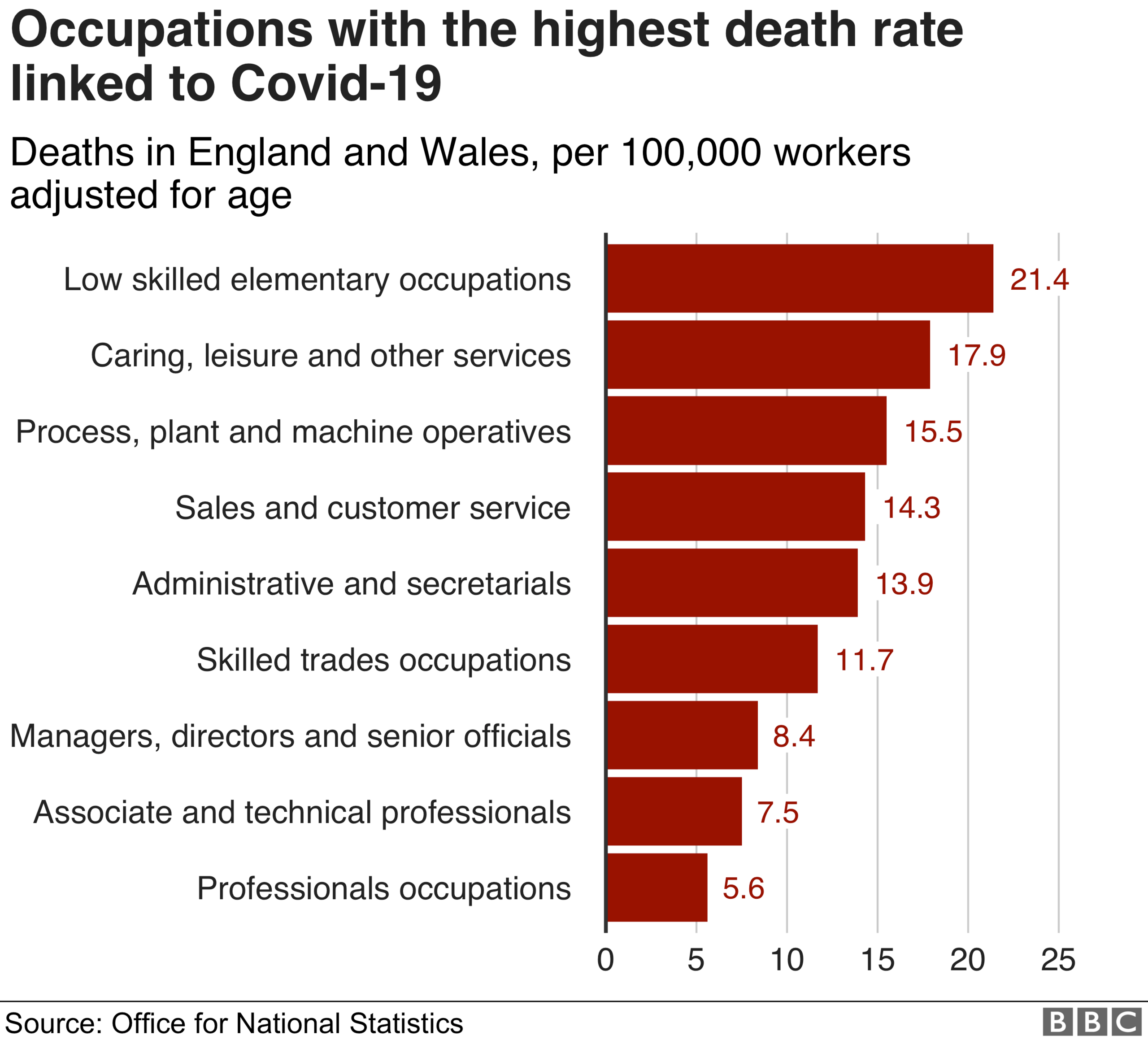Coronavirus: Care-worker death rate twice that of health workers
- Published

People working in social care in England and Wales have been twice as likely to die with coronavirus as the general working-age population, Office for National Statistics figures show.
But healthcare workers have been no more likely to die than other workers.
Nearly two-thirds of the 2,494 20- to 64-year-olds whose deaths were linked to Covid-19 were men.
And 63 were male security guards, making them almost twice as likely to die as even men working in social care.
The ONS analysis, external, up to 20 April, factored in age but did not take account of people's ethnicity, location, wealth or underlying health conditions.
As a result, it cannot prove the deaths were caused by the jobs people do or by other factors.
Being male, from an ethnic minority and having other health problems increase the risk of dying with Covid-19.

Of the 2,494 deaths analysed, 131 were care workers - 86 female and 45 male.
But because many more social care workers are female, this equates to a death rate of 23.4 per 100,000 for men and 9.6 per 100,000 for women.
However, despite their close proximity to patients, healthcare workers, including doctors and nurses, had much lower death rates.
This may be because they had better access to personal protective equipment (PPE) than other workers.
The overall death rate for men aged 20-64 in England and Wales linked to Covid-19 was 9.9 deaths per 100,000, compared with 5.2 for women.
For male security guards, it was 45.7.

LOCKDOWN UPDATE: What's changing, where?
SCHOOLS: When will children be returning?
EXERCISE: What are the guidelines on getting out?
THE R NUMBER: What it means and why it matters
AIR TRAVELLERS: The new quarantine rules
LOOK-UP TOOL: How many cases in your area?
GLOBAL SPREAD: Tracking the pandemic
RECOVERY: How long does it take to get better?
A SIMPLE GUIDE: What are the symptoms?

Among men, some specific occupations had noticeably higher death rates linked to Covid-19, including:
taxi drivers and chauffeurs (36.4 deaths per 100,000)
chefs (35.9)
bus and coach drivers (26.4)
sales and retail assistants (19.8)
And men in low-skilled jobs were more likely to die with Covid-19 than other groups, including managers, skilled tradesmen and professionals.

Dr Michael Head, senior research fellow in global health, from the University of Southampton, said: "The forthcoming guidance for safe working simply has to provide extensive detail on how each sector is expected to manage their staff and working environments."
Prof Keith Neal, emeritus professor in the epidemiology of infectious diseases, at the University of Nottingham, said the higher male death rates in many occupations could be "contributing to the higher overall mortality in men".
"The higher rate in the confined spaces of taxis and similar vehicles is consistent with what we know about indoor transmission," he said.
And this had "important policy implications for restarting work".